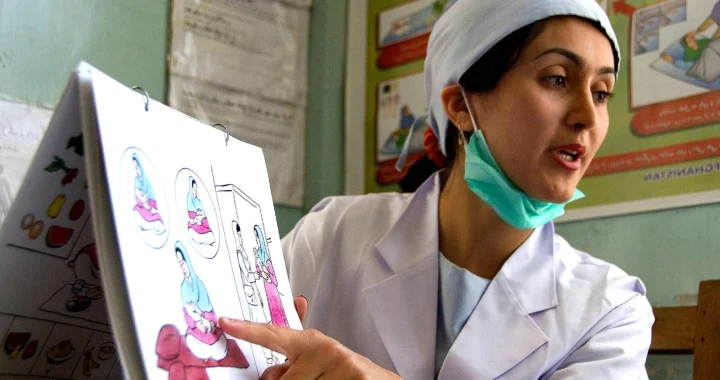More Graduates, Fewer Jobs: Looking into Graduate Unemployment in Developing Countries

Photo: Joshua Hoehne on Unsplash
The number of young people completing higher education is rising rapidly, signaling progress in expanding access to education. Yet, getting a higher education degree no longer guarantees employment. In developing countries, many young graduates struggle to find jobs that match their qualifications, with labor markets offering very limited opportunities amid the growing supply of educated job seekers. The rising graduate unemployment raises questions about the true value of higher education.
Graduate Unemployment in Developing Countries
Unemployment among university graduates has become a growing issue in many developing countries. The issue is exacerbated by the increasing number of university graduates entering labor markets that cannot be absorbed by limited job opportunities. In South Africa, for example, the graduate unemployment rate increased from 8.7% in 2024 to 11.7% in the first quarter of 2025, highlighting growing concerns about the disconnect between education and labor market needs.
Similarly, Indonesia recorded 1.01 million unemployed university graduates in 2025, representing a 1.11% increase from the previous year. Even in China, the largest graduating class ever, faces youth unemployment, with nearly 21% of people aged 16 to 24 out of work in 2023. All this demonstrates significant challenges for recent graduates entering a highly competitive job market.
Understanding the Root Causes
The causes of rising graduate unemployment in developing countries are multifaceted, with both education systems and labor markets playing crucial roles.
For instance, research highlights that education systems in these countries often fail to equip young people with the skills required by employers, resulting in a significant skill mismatch. Additionally, lack of access to quality education, outdated curricula, and gender barriers limit graduates’ ability to compete in rapidly evolving labor markets that require technical and vocational expertise. These gaps continue to leave many people with a degree underprepared for employment, thus exacerbating the graduate unemployment crisis.
At the same time, economic and structural barriers further deepen the crisis. Slow economic growth and insufficient formal sector expansion in many developing countries limit the creation of quality jobs that suit graduate skills. Rigid labor market regulations and weak governance contribute to constrained opportunities for decent work, especially for young people. Without coordinated reforms of both education and labor market systems, the persistent gap between graduate supply and job opportunities will continue to grow.
Severe Consequences
Rising youth unemployment, especially among university graduates, carries severe economic and social consequences for individuals and society as a whole. Economically, the underutilization of young talent leads to significant productivity losses, which can slow the national economic growth. For example, South Africa, where youth unemployment rates exceed 11.7%, faces reduced economic potential.
Socially, prolonged unemployment among youth can increase poverty, cause mental health issues, and fuel social unrest, with some countries experiencing protests linked directly to a lack of youth opportunities. To make ends meet, many people resort to taking informal, gig-based jobs, with minimum wages, long work hours, and a lack of protective regulations and mechanisms.
Moreover, the large-scale impact on society includes the phenomenon of “brain drain”, where skilled young graduates migrate abroad in search of better opportunities, resulting in a loss of talent for their home countries. This migration can undermine efforts to build robust local economies and worsen inequalities between countries. Overall, the impact of graduate unemployment can threaten both present and future social stability and economic progress in developing countries.
Better Alignment & Collaborative Efforts Needed
To effectively tackle graduate unemployment in developing countries, systemic changes are needed in both education and labor market policies. Education systems must balance traditional and theory-based curricula with more practical and skills-based training that aligns closely with market demands. Moreover, stronger collaboration between educational institutions and industries can ensure curricula remain relevant and graduates are better prepared for real-world jobs. This is especially crucial as the world currently needs education systems and job landscapes that support the shift toward sustainable practices for people and the planet.
On the labor market side, creating an enabling environment to stimulate formal sector growth is crucial. Governments should reform labor regulations to encourage entrepreneurship and private investment, particularly in sectors that can absorb educated youth. Enhancing access to accurate labor market information and career guidance can help graduates make informed decisions and reduce mismatches. Finally, multi-stakeholder partnerships involving government, educational institutions, the private sector, and the youth themselves are key to developing comprehensive workforce strategies that promote inclusive, sustainable employment growth for graduates.
Editor: Nazalea Kusuma & Kresentia Madina

Co-create positive impact for people and the planet.
Amidst today’s increasingly complex global challenges, equipping yourself, team, and communities with interdisciplinary and cross-sectoral insights on sustainability-related issues and sustainable development is no longer optional — it is a strategic necessity to stay ahead and stay relevant.


 Systemic Shift to Enable Healthy School Food Environments
Systemic Shift to Enable Healthy School Food Environments  Looking into the Global Midwife Shortage
Looking into the Global Midwife Shortage  Reframing Governance in the Era of Water Bankruptcy
Reframing Governance in the Era of Water Bankruptcy  Strengthening Resilience amid Growing Dependence on Space Infrastructure
Strengthening Resilience amid Growing Dependence on Space Infrastructure  Indian Gig Workers Push Back Against 10-Minute Delivery Service Strain
Indian Gig Workers Push Back Against 10-Minute Delivery Service Strain  Call for Governance: Grassroots Initiatives Look to Scale Efforts to Conserve Depleting Groundwater
Call for Governance: Grassroots Initiatives Look to Scale Efforts to Conserve Depleting Groundwater